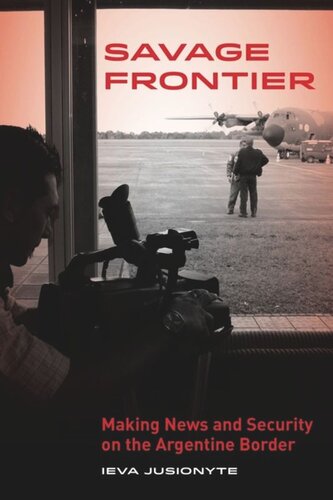

Most ebook files are in PDF format, so you can easily read them using various software such as Foxit Reader or directly on the Google Chrome browser.
Some ebook files are released by publishers in other formats such as .awz, .mobi, .epub, .fb2, etc. You may need to install specific software to read these formats on mobile/PC, such as Calibre.
Please read the tutorial at this link: https://ebookbell.com/faq
We offer FREE conversion to the popular formats you request; however, this may take some time. Therefore, right after payment, please email us, and we will try to provide the service as quickly as possible.
For some exceptional file formats or broken links (if any), please refrain from opening any disputes. Instead, email us first, and we will try to assist within a maximum of 6 hours.
EbookBell Team

0.0
0 reviewsThis highly original work of anthropology combines extensive ethnographic fieldwork and investigative journalism to explain how security is understood, experienced, and constructed along the Triple Frontera, the border region shared by Argentina, Brazil, and Paraguay. One of the major "hot borders" in the Western Hemisphere, the Triple Frontera is associated with drug and human trafficking, contraband, money laundering, and terrorism. It's also a place where residents, particularly on the Argentine side, are subjected to increased governmental control and surveillance.
How does a scholar tell a story about a place characterized by illicit international trading, rampant violence, and governmental militarization? Jusionyte inventively centered her ethnographic fieldwork on a community of journalists who investigate and report on crime and violence in the region. Through them she learned that a fair amount of petty, small-scale illicit trading goes unreported—a consequence of a community invested in promoting the idea that the border is a secure place that does not warrant militarized attention. The author's work demonstrates that while media is often seen as a powerful tool for spreading a sense of danger and uncertainty, sensationalizing crime and violence, and creating moral panics, journalists can actually do the opposite. Those who selectively report on illegal activities use the news to tell particular types of stories in an attempt to make their communities look and ultimately be more secure.